The best ways to grow your Multi-Academy Trust
Throughout the years, schools of all kinds have joined together to form MATs; recently, it has become a lot more common for schools to join existing trusts. Especially over the last two years, with many Trust transfers and schools converting to join existing MATs becoming something of a trend. The future of multi academy trusts is looking expansive however, these require legal advice in order to maintain compliance and stay ethical.
Muckle LLP is a leading UK law firm specialising in the formation and growth of MATs. Legal education experts Joanne Davison and Richard Nixon cover how to prepare and what to consider when growing or joining a MAT, among other legal counsel.
So, what are the best ways to grow your Multi-Academy Trust? And how do you prepare for it?
Due diligence is crucial here. Firstly, the decision needs to be made whether the due diligence process will be in person or document based? What resources do you have to carry this out?
The areas to which your questions relate to should fall under the following categories:
- Education/Finance/Contracts/Insurance
- Governance and leadership
- Strategy
- Culture and People
- Health and Safety
- IT infrastructure
The whole purpose of the initial due diligence and creation of a list of key questions is to identify the potential risks and liabilities a school or trust may have. This can involve topics like debts or claims they would bring with them, through to opportunities they might bring or offer by joining.
Out of those categories, two that have stood out a lot recently are culture and health and safety. Are you willing to commit resources to a school that is incompatible to begin with, to make them compatible? And if so, where would you get those resources?
IT infrastructure can be a hidden cost of integration as well. It would be good to ask about their systems and hardware so you can have a picture of the sort of infrastructure in place.
You should also ask yourself important questions before considering expansion, what do you, as a trust, want to achieve from growth?

Importantly, do you have the capacity, not only for the project of conversion but also for the growth it entails? While you may have the capacity for the conversion, is it worth it if doing so destabilises the hard work and jobs everybody is doing? Secondly, do you need to make any changes to facilitate the expansion/conversion?
You may have seen in DfE publications the concept of trust partnerships – think of it as a ‘try before you buy’ model. It has seen limited success throughout the UK due to its ability to allow you to work together with a partner before formally joining them.
The key point to remember throughout these stages is to keep talking. Keep asking questions, talking to staff when appropriate and talking with growth partners. Two-way communication is vital in a successful transition.
When considering conversions and transfers, land ownership becomes a much greater focus. Whether you are taking on a converter school or taking on a mix of converters and transfers, you need to be looking closely at land ownership. The problems occur when questions like, who owns the land? And, is this owner the correct one? Are answered with a “no” or “I don’t know.”
An example highlighting the importance of land ownership is when working with church or faith schools, the land will be split between the diocese and local authority. While this information may not be incorrect, it can be out of date.
Getting this information correct – or up to date – can take a lot of time, meaning if you have fixed timescales you need to adhere to, it’s best to start dealing with this as soon as possible. Check the records of the land, look at areas like maintenance, health and safety, asbestos and PAT testing to make sure you are informed of the kind of land you could be getting.
Another difficulty of land ownership is whether a member of staff, such as a caretaker, lives on-site? If so, what are the plans for that member of staff? Is their house still safe? What will happen to their job?
Finally, look for potential liabilities, such as:
- Payments to third parties – rent, repairs, and grant obligations.
- Loss makers – leisure facilities and swimming pools for example.
- Outstanding maintenance work.
However, it’s not all doom and gloom; more assets mean more opportunity! These can come in the form of lettings income, new grant funding and occasionally even development land sales.
So, we’ve considered the important initial questions and highlighted the need to focus on land ownership, but what other contract-related steps must be considered when planning expansion?
- Conduct a contract review.
- Identify contracts that will transfer.
- Consider termination provisions.
- Harmonise your SLAs.
- Bringing services in-house (is this viable post-expansion etc.)
During this time, make sure to negotiate the conversion process with other parties to make the process as smooth as possible.
Regarding governance, it is important to perform both a policy and board review to ensure that the composition and strategies in place are still reflected post-expansion.
If you would like to take advantage of Muckle LLP’s country-leading legal expertise to see how they can help your MAT grow or school expand, then contact Joanne Davison on 0191 211 7958 or by emailing joanne.davison@muckle-llp.com.
If you would like to watch the Education Buying webinar, you can do so here.





